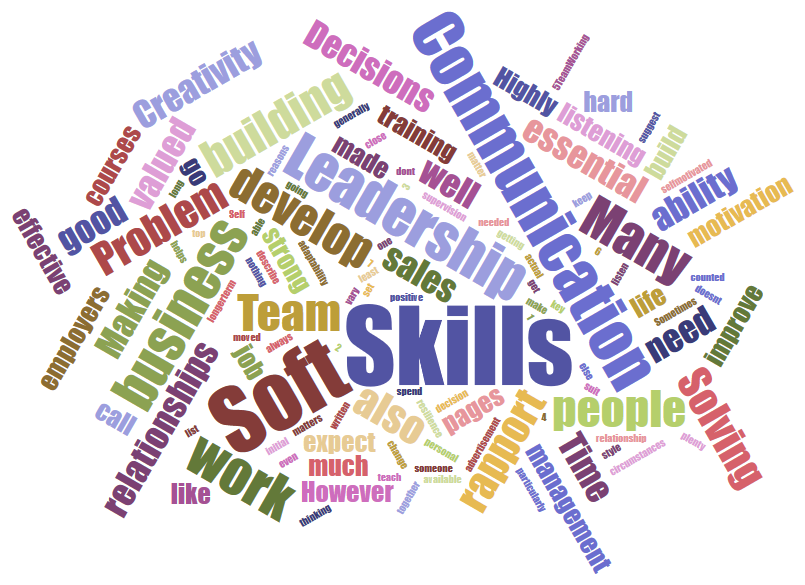The Crucial Role of Soft Skills in Business Success!

In today’s dynamic businesses, the importance of soft skills cannot be overstated.
While Technical/Hard skills are essential for specific job functions, it is the qualities encompassed by soft skills that advance effective interpersonal relationships, collaboration, and overall success in the workplace.
Soft skills, such as communication, building rapport, questioning, active listening, and problem-solving are universal attributes which are valued across diverse businesses, professions, and sectors, contributing significantly to an individual’s adaptability and versatility.
Below is a summary of situations where, and when, soft skills can be used to enhance the end result.
Communication: A cornerstone soft skill is vital for articulating ideas clearly, actively, and conveying information effectively in any role.
Teamwork: Essential for success in most workplaces, emphasising collaboration and the ability to work together with others.
Adaptability: Another key soft skill, underscores the importance of navigating changing circumstances, acquiring new skills, and embracing innovation in dynamic work environments.
Problem-Solving: A highly valued mix of soft skills empowering individuals to analyse situations, identify challenges and able to consider different perspectives and points of view.
Creativity: Adds further value, fostering the generation of innovative ideas, process improvements, and novel approaches to address complex issues.
Time management: Crucial for productivity and meeting deadlines, shows an individual’s ability to efficiently prioritise tasks.
Leadership skills: Traditionally associated with managerial roles, influencing, and motivating positively, even in non-managerial positions.
Emotional intelligence: Enhances effective communication and relationship-building by understanding and managing one’s emotions and those of others.
Conflict Resolution: Using a mix of questioning, active listening and negotiating skills to find an amicable and peaceful solution to a disagreement between one or more parties.
Networking & Negotiation: These are essential for establishing and maintaining professional relationships, opening doors to collaboration and possible career advancement.
While hard skills are learned through education and training, soft skills are transferable and find application in diverse settings. Employers increasingly recognise the significance of soft skills in shaping a well-rounded and effective workforce. Studies suggest that, in hiring and promotions, employers often prioritise soft skills over technical expertise.
Achieving a balance between hard and soft skills enhances both an individual’s and the company’s versatility and adaptability in the ever-evolving workplace.
Cultivating a robust set of soft skills is an investment worth taking to increase productivity and profitability, with a happy workforce that excels in collaboration, problem-solving and sustainability, leading to increased growth.
About the Author – Paul Clayton FISM
I work with successful business owners and Directors who want to increase their success. I specialise in Sales Growth, Business Development, Customer Experience & Employee Engagement. By taking planned, positive actions to continuously improve your People, Processes, Products and services, you will significantly increase Productivity, Profitability and Success.
Contact Me for more information to INCREASE PROFITABLE SALES



